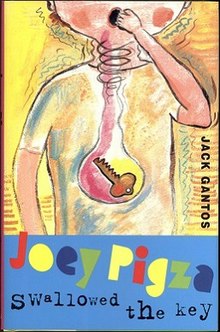
Attention deficit hyperactivity disorder (ADHD) is a neurodevelopmental disorder characterised by excessive amounts of inattention, hyperactivity, and impulsivity that are pervasive, impairing in multiple contexts, and otherwise age-inappropriate.
Selective mutism (SM) is an anxiety disorder in which a person who is otherwise capable of speech becomes unable to speak when exposed to specific situations, specific places, or to specific people, one or multiple of which serving as triggers. This is caused by the freeze response. Selective mutism usually co-exists with social anxiety disorder. People with selective mutism stay silent even when the consequences of their silence include shame, social ostracism, or punishment.
The Simmons College Center for the Study of Children's Literature is an academic program at Simmons College specializing in the critical study of children's literature. The program was founded in 1977, and was the first program in the United States to offer a master's degree in the field.
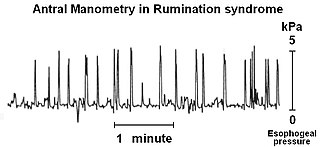
Rumination syndrome, or merycism, is a chronic motility disorder characterized by effortless regurgitation of most meals following consumption, due to the involuntary contraction of the muscles around the abdomen. There is no retching, nausea, heartburn, odour, or abdominal pain associated with the regurgitation, as there is with typical vomiting, and the regurgitated food is undigested. The disorder has been historically documented as affecting only infants, young children, and people with cognitive disabilities . It is increasingly being diagnosed in a greater number of otherwise healthy adolescents and adults, though there is a lack of awareness of the condition by doctors, patients and the general public.

Jack Gantos is an American author of children's books. He is best known for the fictional characters Rotten Ralph and Joey Pigza. Rotten Ralph is a cat who stars in twenty picture books written by Gantos and illustrated by Nicole Rubel from 1976 to 2014. Joey Pigza is a boy with attention-deficit hyperactivity disorder (ADHD), featured in five novels from 1998 to 2014.

Despite the scientifically well-established nature of attention deficit hyperactivity disorder (ADHD), its diagnosis, and its treatment, each of these has been controversial since the 1970s. The controversies involve clinicians, teachers, policymakers, parents, and the media. Positions range from the view that ADHD is within the normal range of behavior to the hypothesis that ADHD is a genetic condition. Other areas of controversy include the use of stimulant medications in children, the method of diagnosis, and the possibility of overdiagnosis. In 2009, the National Institute for Health and Care Excellence, while acknowledging the controversy, states that the current treatments and methods of diagnosis are based on the dominant view of the academic literature.

Richard Wayne Peck was an American novelist known for his prolific contributions to modern young adult literature. He was awarded the Newbery Medal in 2001 for his novel A Year Down Yonder. For his cumulative contribution to young-adult literature, he received the Margaret A. Edwards Award from the American Library Association in 1990.
Bipolar disorder in children, or pediatric bipolar disorder (PBD), is a rare and controversial mental disorder in children and adolescents. PBD is hypothesized to be like bipolar disorder (BD) in adults, thus is proposed as an explanation for periods of extreme shifts in mood called mood episodes. These shifts alternate between periods of depressed or irritable moods and periods of abnormally elevated moods called manic or hypomanic episodes. Mixed mood episodes can occur when a child or adolescent with PBD experiences depressive and manic symptoms simultaneously. Mood episodes of children and adolescents with PBD deviate from general shifts in mood experienced by children and adolescents because mood episodes last for long periods of time and cause severe disruptions to an individual's life. There are three known forms of PBD: Bipolar I, Bipolar II, and Bipolar Not Otherwise Specified (NOS). Just as in adults, bipolar I is also the most severe form of PBD in children and adolescents, and can impair sleep, general function, and lead to hospitalization. Bipolar NOS is the mildest form of PBD in children and adolescents. The average age of onset of PBD remains unclear, but reported ages of onset range from 5 years of age to 19 years of age. PBD is typically more severe and has a poorer prognosis than bipolar disorder with onset in late-adolescence or adulthood.

What Would Joey Do? is a 2003 novel in a series by Jack Gantos about the character, Joey Pigza. The title is a play on the Christian phrase "What would Jesus do?", which Mrs. Lapp, Joey's homeschooling tutor, asks him at her doorstep on every visit. The phrase is also a mirror to Joey's own trouble-filled life, as to which choice would be the best for "mopping up the messy corners of his life."
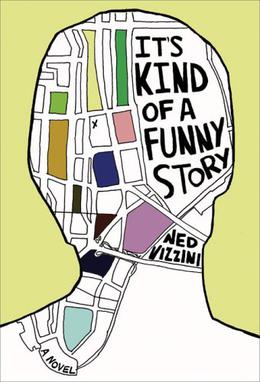
It's Kind of a Funny Story is a 2006 novel by American author Ned Vizzini. The book was inspired by Vizzini's own brief hospitalization for depression in November 2004. Ned Vizzini later died by suicide on December 19, 2013. The book received recognition as a 2007 Best Book for Young Adults from the American Library Association.

Hans Steiner was an Austrian-born American professor of psychiatry and behavioral sciences, child and adolescent psychiatry and human development at Stanford University, School of Medicine. In 2010 he was awarded Lifetime Distinguished Fellow by the American Psychiatric Association.
An emotional or behavioral disability is a disability that impacts a person's ability to effectively recognize, interpret, control, and express fundamental emotions. The Individuals with Disabilities Education Act of 2004 characterizes the group of disabilities as Emotional Disturbance (ED). This term is controversial as it is seen by some as excluding or even discriminating against students with behavior issues and just focuses on the emotional aspects.
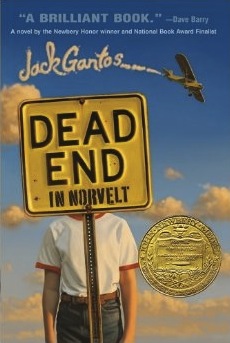
Dead End in Norvelt is an autobiographical novel by the American author Jack Gantos, published by Farrar, Straus, and Giroux in 2011. It features a boy named Jack Gantos and is based in the author's hometown, Norvelt, Pennsylvania. According to one reviewer, the "real hero" is "his home town and its values", a "defiantly political" message.

Marcelo in the Real World is a young adult novel by Francisco Stork. Published in 2009, this award-winning book tells the story of a summer in the life of 17-year-old Marcelo Sandoval, a boy with Asperger-like characteristics.
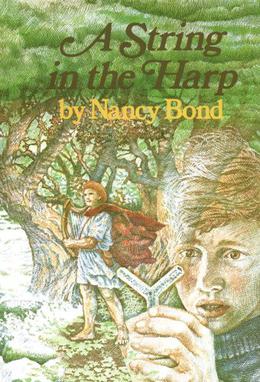
A String in the Harp is a children's fantasy novel by Nancy Bond first published in 1976. It received a 1977 Newbery Honor award and the Welsh Tir na n-Og Award. It tells of the American Morgan family who temporarily move to Wales, where Peter Morgan finds a magical harp key that gives him vivid visions of the past. This well-received novel is an unusual time travel story, with its focus on the emotional pain and separation the Morgans experience after the death of their mother and the gradual healing they find through their experiences.
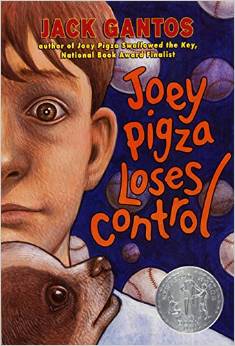
Joey Pigza Loses Control is a Newbery Honor book by Jack Gantos and is the sequel to Joey Pigza Swallowed the Key. This realistic fiction book was published in the year 2000 and describes the challenging life of young Joey who had attention deficit disorder.
Molly Leach is an American graphic designer best known for her award-winning children's books.
The Schneider Family Book Award is an award given by the American Library Association (ALA) recognizing authors and illustrators for the excellence of portrayal of the disability experience in literature for youth. There is a category for children's books, books appealing to middle grade readers and for young adult literature. The award has been given since 2004. The award was founded by Dr. Katherine Schneider, who was the first blind student to graduate from the Kalamazoo Public School system. Schneider had been helped through school as a child by a librarian at the Michigan Library for the Blind who provided books in Braille to her. The award is given out annually and the winners are announced at the ALA Midwinter Meeting.
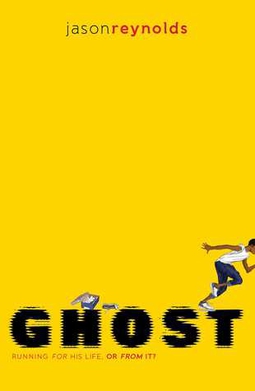
Ghost is a young adult novel by Jason Reynolds, published August 30, 2016 by Atheneum Books. It is the first book of Reynold's Track series, followed by Patina (2017), Sunny (2018), and Lu (2018).
I Am Not Joey Pigza is a 2007 children's novel by Jack Gantos. It is the fourth book of a series featuring the character Joey Pigza, a boy with attention deficit hyperactivity disorder.
